Safeguarding Ascension's biodiversity and ecosystems through protection, restoration and long-term management to create a legacy for the future.
Welcome to the AIG Conservation and Fisheries Directorate pages. Learn more about the diverse and special flora and fauna that call Ascension home, explore the Island's nature reserves and heritage sites and read about the work underway to conserve and restore Ascension Island's unique natural ecosystem.
In 2001 the Ascension Island Government and the UK Government signed the Ascension Island Environment Charter, outlining guiding principles and a commitment to the protection of the Island's environment. Since then AIG Conservation and Fisheries Directorate (AIGCFD) has made steady progress in conserving and promoting the Island’s unique biodiversity. Working with partners and supporters the Directorate carries out practical conservation tasks along with a number of research projects. If individuals or organisations are interested in conducting research either on Ascension Island or within Ascension's Exclusive Economin Zone, an Environmental Research Permit must first be requested and approved. Please email all enquiries and completed forms to the Directorate.
AIGCFD welcomes volunteers who are keen to get outdoors and involved with the work the directorate carries out. There are many activities throughout the year that volunteers can help with such as working with the Reserve Warden team or removing invasive species.
For those interested in volunteering or to find out what activities are available please call 66359, email the department or pop in to the Conservation Centre in Georgetown.
All volunteers must already be on island and will need to complete a volunteer form before undertaking any volunteering activities. These can be downloaded online or are available in hard copy from the Conservation Centre.
AIGCFD run turtle watching tours once a week during the height of turtle season. Tours are also available to watch land crab spawning events at their height. These tours will depend on time of year and availability, and are free to island residents. Tours are a great way to learn best practices for viewing Ascension's wildlife. They are advertised on Conservation's social media, in the local Islander, on notice boards and by email notices.
If individuals are interested in booking a tour please call 66359, email the directorate or pop in to the Conservation Centre in Georgetown.
Find out more about our work to safeguard Ascension’s unique biodiversity in this short documentary produced by Bryony Stokes and funded by the Darwin Initiative:
The Ascension Island Government Conservation and Fisheries Directorate (AIGCFD) comprises of several different teams that are listed below. Each team has their own specialty and responsibilities, working together to protect the whole of Ascension Island's biodiversity.
AIGCFD as a whole is also involved in outreach and the local community, organising public events such as family fun days, volunteer days, beach cleans and participating in the Ascension Day Fair. During the school holidays the directorate runs ‘Explorers’ for young people to discover the unique habitats and wildlife of Ascension. Throughout the school year the team regularly lead school trips and classroom lessons. AIGCFD also coordinates youth trainee internships and work experience placements available for local school students. Souvenirs are also on sale in the Conservation Centre's shop.
An annual newsletter is sent to partners and interested bodies while local people can keep up-to-date through articles in the weekly island newsletter. For those interested in receiving the newsletter, please email AIGCFD.
Information on conservation work under way on Ascension's sister island of St Helena can be found on the St Helena government website.
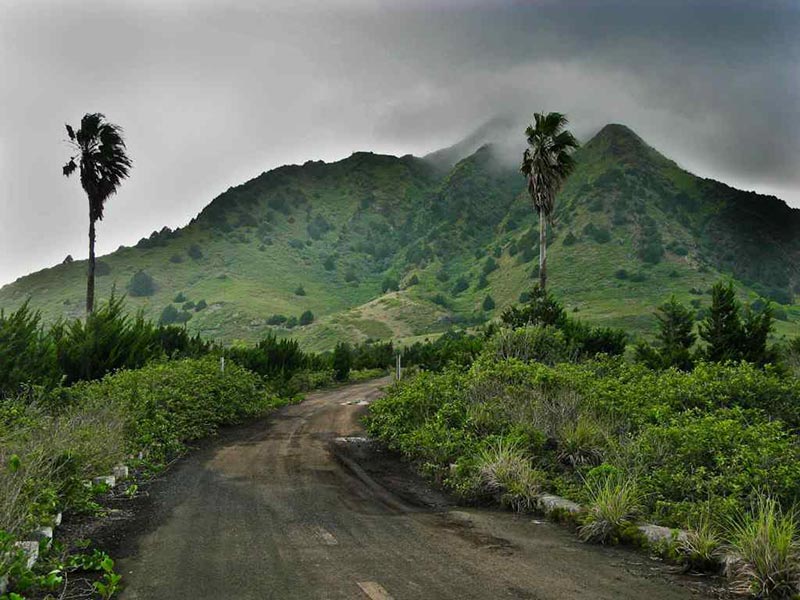
The Terrestrial Conservation Team have varied responsibilities that encompass the diversity of flora and fauna that live or spend part of their life cycle on Ascension Island. These responsibilities can often intertwine and overlap.
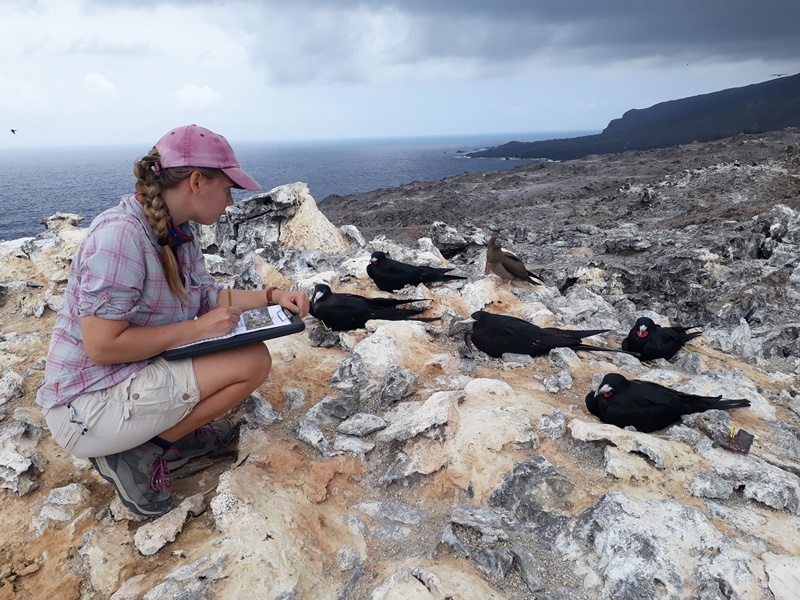
Ascension Island supports nationally and internationally important populations of nesting seabirds including the endemic Ascension Frigatebird. AIGCFD monitors the health of these populations, performing regular census and monitoring key colonies to record how many chicks successfully fledge.
Unique rings and specialised tags are used to uncover where individual birds travel and can provide information about breeding and survival rates. Seabird diet is monitored as an indicator of the health of the marine ecosystem.
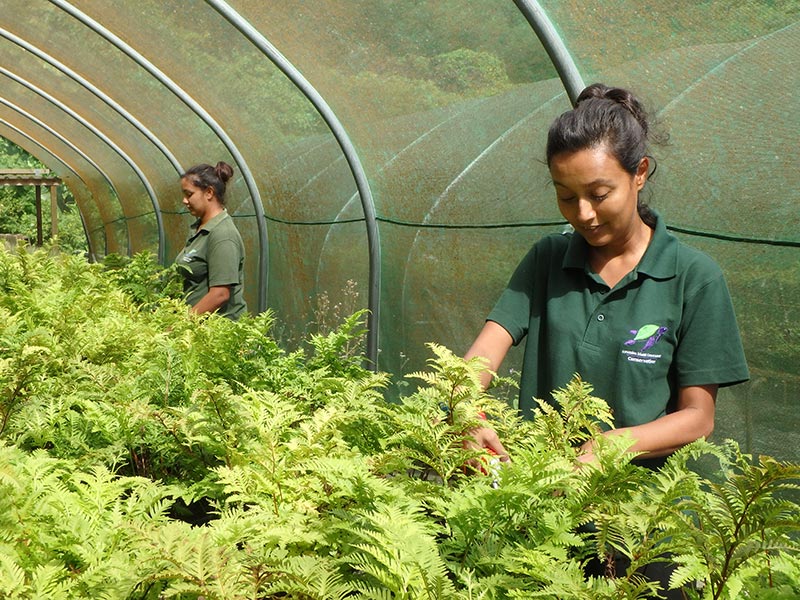
There are at least 25 plants that are native to Ascension - including 10 endemic species, of which only 7 are still alive. These endemic plants are heavily threatened by invasive plant and pest species, climate change and human activity.
The directorate strives to tackle these challenges, monitoring plant health and abundance while taking active conservation efforts through nursery work, habitat restoration, and propagation trials. Seeds and spores are collected and stored at Kew's Millennium Seed Bank as a conservation failsafe.
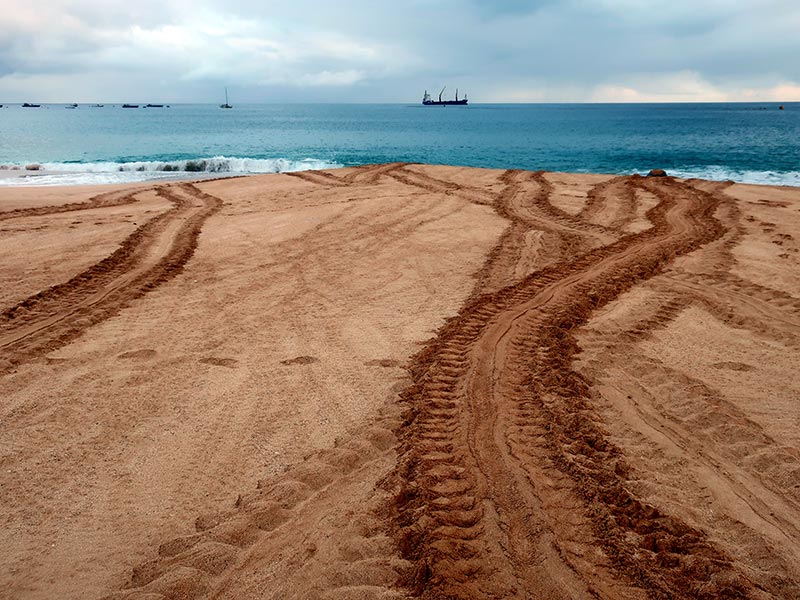
Ascension Island has the second largest nesting population of green turtles in the Atlantic ocean, with over 25,000 nests annually. AIGCFD conducts a long term population monitoring project studying the trends and productivity of the green turtles.
This work includes track and nest counts, measuring hatching success and recording nest temperatures. During the nesting season (December-June), guided turtle tours are run in the evening for residents and visitors to view nesting turtles.
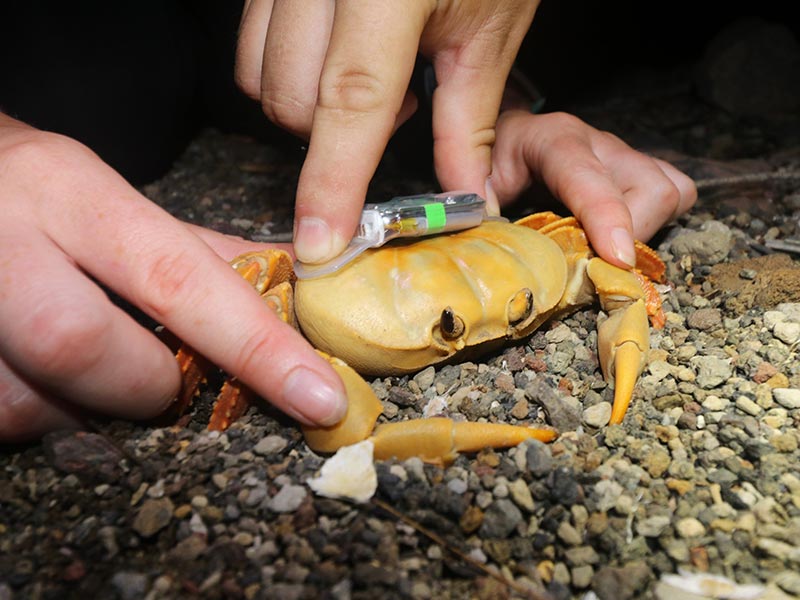
The land crab is a near-endemic of Ascension Island, found only here and on two islands off Brazil. AIGCFD’s Operation Land Crab project was created to address the lack of information on the status of the population and the threats they face.
Data is collected on spawning behaviour and growth rates during the spawning season from Feb-Apr. Individual crabs are also tagged to track migration. This baseline data can be used to develop robust population monitoring protocols and improve our ecological understanding of this species.
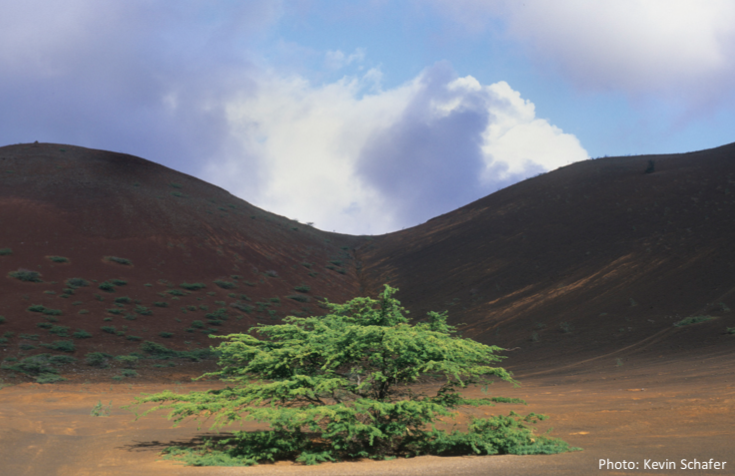
Ascension has seen many introduced species since it was first settled in 1815. Several of these species have had a major impact, reshaping habitats and ecosystems that native flora and fauna rely on.
AIGCFD controls and removes invasive plant species within clearance zones covering protected areas, areas of natural beauty and other important conservation areas.
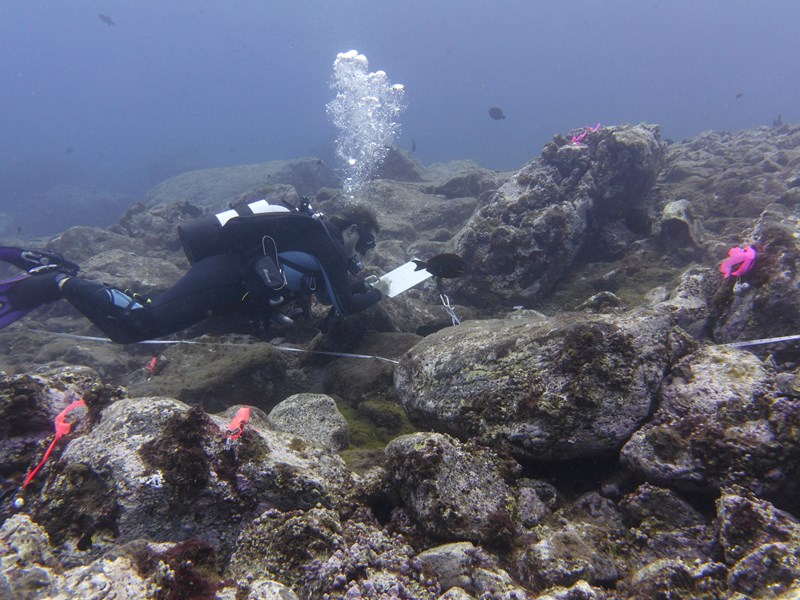
Ascension Island’s marine ecosystem is relatively untouched, with an abundance of life. AIGCFD monitor the health of this environment by collecting important ecological data via abundance surveys, biological sample collection and the acoustic tagging of economically important species such as spiny lobster, rock hind grouper, and yellow spotted moray.
Analysis provides insight into population dynamics, growth rates, spawning cycles and maturity of these key species. This allows effective monitoring and management to ensure this important resource is here for years to come. AIGCFD work alongside UK agencies to monitor and manage the Ascension Island Marine Protected Area.
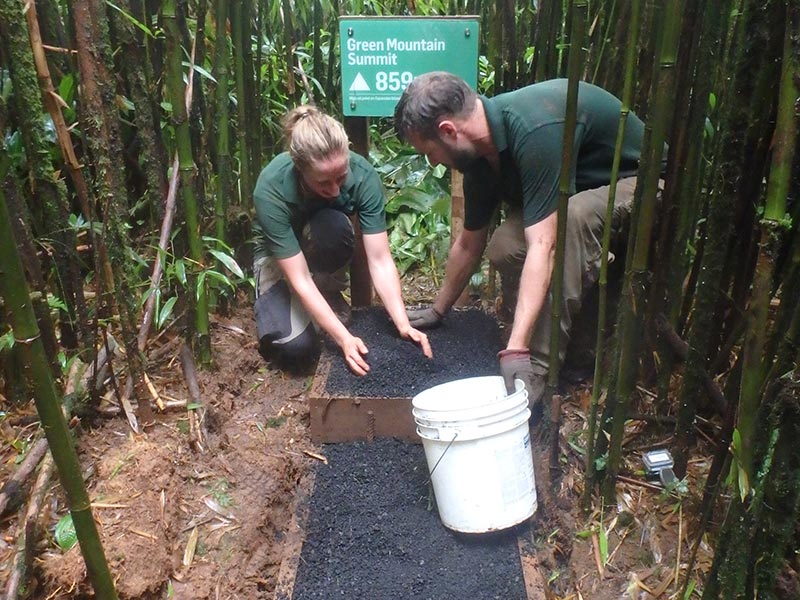
The AIGCFD Reserve Wardens conserve the natural and cultural heritage of Ascension Island's protected areas. The wardens perform practical conservation tasks such as clearing paths and building infrastructure to enhance public enjoyment and accessibility while protecting the island's unique biodiversity.
The directorate maintain historical features found within the protected areas and carry out important scientific research on key species. The wardens promote community engagement with the national park and nature reserves, providing information and organising public events.
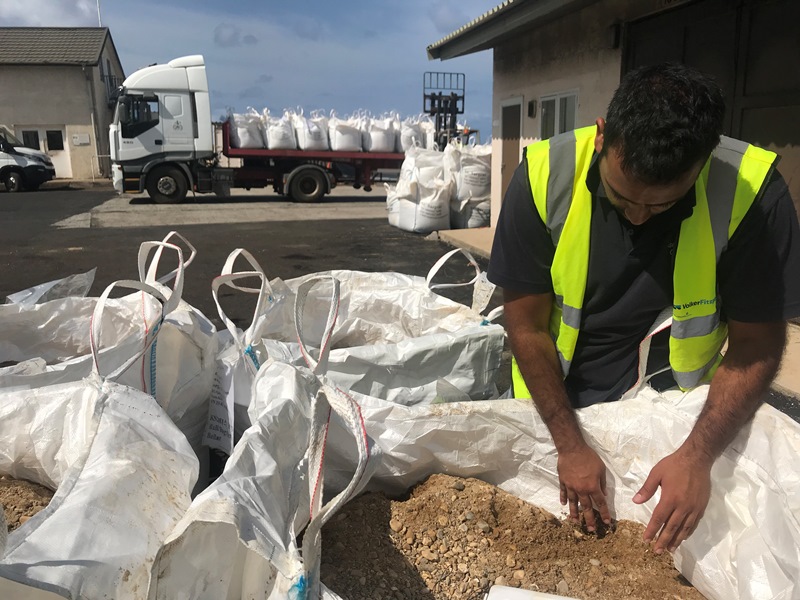
As an isolated island, one of the greatest threats to local biodiversity to the introduction of invasive non-native species (INNS). The majority of all recorded island extinctions list invasive species as the primary cause. The Conservation Department are working with partners locally and internationally to prevent, detect, control and eradicate invasive non-native species within the Ascension Island Territory. This is being done through the development of:
Social Media
To keep up to date with the AIG Conservation and Fisheries Directorate (AIGCFD) follow us on social media.
[custom-facebook-feed]